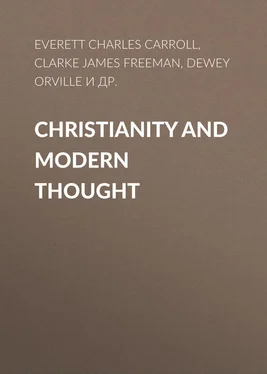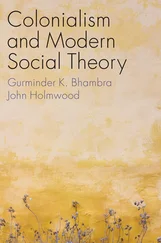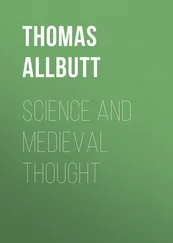Andrew Peabody - Christianity and Modern Thought
Здесь есть возможность читать онлайн «Andrew Peabody - Christianity and Modern Thought» — ознакомительный отрывок электронной книги совершенно бесплатно, а после прочтения отрывка купить полную версию. В некоторых случаях можно слушать аудио, скачать через торрент в формате fb2 и присутствует краткое содержание. Жанр: foreign_antique, foreign_prose, на английском языке. Описание произведения, (предисловие) а так же отзывы посетителей доступны на портале библиотеки ЛибКат.
- Название:Christianity and Modern Thought
- Автор:
- Жанр:
- Год:неизвестен
- ISBN:нет данных
- Рейтинг книги:5 / 5. Голосов: 1
-
Избранное:Добавить в избранное
- Отзывы:
-
Ваша оценка:
- 100
- 1
- 2
- 3
- 4
- 5
Christianity and Modern Thought: краткое содержание, описание и аннотация
Предлагаем к чтению аннотацию, описание, краткое содержание или предисловие (зависит от того, что написал сам автор книги «Christianity and Modern Thought»). Если вы не нашли необходимую информацию о книге — напишите в комментариях, мы постараемся отыскать её.
Christianity and Modern Thought — читать онлайн ознакомительный отрывок
Ниже представлен текст книги, разбитый по страницам. Система сохранения места последней прочитанной страницы, позволяет с удобством читать онлайн бесплатно книгу «Christianity and Modern Thought», без необходимости каждый раз заново искать на чём Вы остановились. Поставьте закладку, и сможете в любой момент перейти на страницу, на которой закончили чтение.
Интервал:
Закладка:
This is the work that Liberal Christianity has in hand; a difficult, slow, and often discouraging work, but one that is intensely patriotic, intensely practical, intensely necessary. That which was the mere fortress into which the enlightened and free-minded people of Massachusetts fled for refuge from ecclesiastical tyranny, a half-century ago, – Unitarianism, – is now become a recognized crusade for religious liberty for the American people. The liberty is coming fast enough, and surely enough; but will the worship, will the Christian seriousness, will the fellowship of faith, will the piety that gives aromatic beauty as well as health to the soul, come with it? If it were not to come, liberty would be only license and secularity and worldliness. Every firm, well-ordered, earnest and religious congregation of the liberal faith; exhibiting stableness, order, solemnity; doing religious work among the poor, and cultivating piety in its own youth; making sacrifices to its own ideas, and upholding its own worship, – is an argument of the most solid kind, an example of contagious power, an encouragement of priceless cheer, for those who think that Christian liberty necessarily leads to license and decay of worship; or that Christ is less revered and loved and trusted when he is accepted in the derived and dependent character he claimed, – the only tenable, rational, possible character in which a century hence he can be received by any unsuperstitious persons. We have a sacred privilege, a glorious opportunity. We only need to show ourselves warm, earnest, united, attached to worship, fruitful in piety, devoted to good works, zealous for God's glory and man's redemption, sincere, humble, yet rational and free followers of Christ, to win an immense victory for the gospel in this inquiring and doubting age. I have no great immediate hopes, but hopes beyond expression in the gracious development of another generation. I bate not a jot of heart or hope that absolute liberty in religion will favor the growth of piety, as much as political freedom has favored the growth of order and peace and prosperity. Oh! not a thousandth part the power of Christian truth and righteousness has yet been shown in the world. The love of God, the love of man, have only begun their glorious mission. Christ yet waits for his true throne. Humanity is just come of age, and, with some wild festivity, is claiming its heritage. But God is with and over it; and Jesus Christ is its inspirer and guide. He will not lose his headship. He will be more followed when less worshipped; more truly loved when less idolized; more triumphant when more clearly understood! Darkness, wrath, threats, enchantments, sacraments, prostrations, humiliations of reason, emotional transports, affectations of belief, belief for its own sake, – none of these things are truly favorable to Christ's kingdom or the glory of his gospel. God is light, and in him is no darkness at all. Christ is the Sun of righteousness. When reason, conscience, affection, rule the world; when love and justice, and mild and tender views of life and humanity, of God and Christ, displace the cruel terrors and superstitions that have survived the social and political meliorations of the age, we shall begin to see that love is the fulfilling of the law, and liberty of thought the greatest friend of worship, the finest result of Christ's coming, and the throne from which he commands the whole human heart and history.
A TRUE THEOLOGY THE BASIS OF HUMAN PROGRESS
The subject of the present lecture is "A True Theology the Basis of Human Progress." And, in order to strike the key-note, and to indicate the object at which I aim, I will read four or five passages from the New Testament, which describe such a Theology in its spirit and root.
The Apostle Paul says: 1 1 Phil. iii. 13.
"I count not myself to have apprehended: but this one thing I do, forgetting those things which are behind, and reaching forth unto those things which are before, I press toward the mark." So he declares himself a Progressive Christian.
Again he says: 2 2 1 Cor. xiii. 9, 10.
"We know in part, and we prophesy [or teach] in part. But when that which is perfect is come, then that which is in part shall be done away." So he declares that all intellectual statements, his own included, are relative and provisional. He is here speaking, doubtless, not of rational insights, but of the insight when elaborated by the intellect into a statement; not of intuitional knowledge, but that which comes from reflection. In regard to all such propositions, he would accept the modern doctrine of the Relativity of Knowledge; thus cutting up by the roots the poisonous weed of Bigotry.
Again: "Brethren, be not children in understanding: howbeit, in malice be ye children, but in understanding be men." 3 3 1 Cor. xiv. 20.
He thus requires and authorizes a manly, intelligent Theology.
Again: "Who also hath made us able ministers of the New Testament; not of the letter, but of the spirit: for the letter killeth, but the spirit giveth life." 4 4 2 Cor. iii. 6.
He here rejects the Theology of the letter, including the doctrine of Literal Inspiration.
Again: "God hath not given us the spirit of fear; but of power, and of love, and of a sound mind." 5 5 2 Tim. i. 7.
My Thesis to-night is not a truism; my argument is not unnecessary or uncalled for. Nothing is more common than to undervalue the importance of Theology; to regard it as having no bearing on life, no influence on human progress, no causative power in regard to civilization. Mr. Buckle, one of the most recent English philosophical historians, contends that Theology is the result rather than the cause of national character; that it is merely symptomatic of the condition of a people. If they are in a good condition, they have a good Theology; if in a bad condition, a bad one. He even thinks it owing to a mistaken zeal that Christians try to propagate their religion, because he believes that savages cannot become Christians. Civilization, Mr. Buckle supposes, depends greatly upon soil, upon climate, upon food, upon the trade-winds; but not much upon religious ideas. He says that, in England, "theological interests have long ceased to be supreme." "The time for these things has passed by." And this is also a very common opinion among ourselves. Many reformers have a notion that we have done with Theology, that we can do without it. Some men of science tell us that Theology has nothing to do with the advance of civilization, but that this comes from discovery in the sphere of physical science. But I believe that the one thing which retards the progress of reform is a false philosophy concerning God and man, a false view of God's ideas concerning this world; and that the one thing needful for Human Progress is a deeper, higher, broader view of God and his ways. And I hope to be able to show some grounds for this opinion.
The religious instinct in man is universal. Some individuals and some races possess more of it, and others less; but the history of mankind shows that religion in some form is one of the most indestructible elements of human nature. But whether this religious instinct shall appear as faith or as fanaticism; whether it shall be a blind enthusiasm or an intelligent conviction; whether it shall be a tormenting superstition or a consoling peace; whether it shall lead to cruel persecutions or to heavenly benevolence; all this, and more, depends on Theology. Religion is a blind instinct: the ideas of God, man, duty, destiny, which determine its development, constitute Theology.
The same law holds concerning Conscience and Ethics. Conscience in the form of a moral instinct is universal in man. In every human breast there is a conviction that something is right and something wrong; but what that right and wrong is depends on Ethics. In every language of man, there are words which imply ought and ought not, duty, responsibility, merit, and guilt. But what men believe they ought to do, or ought not to do, – that depends on the education of their conscience; that is, on their Ethics.
Читать дальшеИнтервал:
Закладка:
Похожие книги на «Christianity and Modern Thought»
Представляем Вашему вниманию похожие книги на «Christianity and Modern Thought» списком для выбора. Мы отобрали схожую по названию и смыслу литературу в надежде предоставить читателям больше вариантов отыскать новые, интересные, ещё непрочитанные произведения.
Обсуждение, отзывы о книге «Christianity and Modern Thought» и просто собственные мнения читателей. Оставьте ваши комментарии, напишите, что Вы думаете о произведении, его смысле или главных героях. Укажите что конкретно понравилось, а что нет, и почему Вы так считаете.












